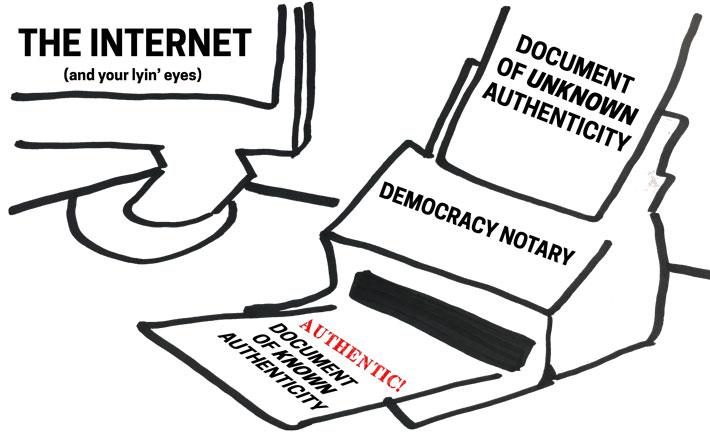“Who you gonna believe” – as the comics say – “me, or your lyin’ eyes?” When it comes to politics, cognitive bias has always given citizens a strong push to believe “their side,” whatever the evidence to the contrary suggests. As disinformation swamps the internet, the problem has become much worse with lyin’ evidence that’s all too easy to believe. Increasingly, information is forged or manipulated. Convincing but fake, this disinformation fuels hyper-partisan hatred, bolsters conspiracy theories and undermines critical democratic institutions. But identifying disinformation is only one piece of the puzzle. What we need is a way to stop forged information entirely; a way to prove that content is original and legitimate.
Sorting Truth from Truthiness in the Digital Age
Whence Popularity? The New Wave of European Populist Parties

Protesters gather in Madrid’s Puerta del Sol square as part of the 15-M anti-austerity movement. Source: Wikimedia Commons
A populist wave has crashed down upon the streets of Europe. Populist parties, old and new, left and right, have been dominating headlines in Europe over the past few years. Such parties are often led by charismatic leaders, and they claim to represent the will of the people against the elite or status quo. “The people” they appeal to are often those who feel alienated by European integration -- those who feel threatened by economic reform or lenient immigration policies.

